Must we get high blood pressure and heart disease as we age? It turns out that while heart disease is the leading cause of death around the world.1 experts estimate that fully 80 percent or more of heart disease is preventable.2 One of my patients perfectly illustrates the truth of this.
Joe’s Story—from the NYPD to TM, Maharishi AyurVeda, and Heart Health
Joseph is a retired NYPD officer. He has served through many stressful times, including during the fall of the World Trade Center. While he tried to watch his diet and exercise, his cholesterol was higher than his internist liked, and he continually pressed Joe to take statins (cholesterol-lowering drugs). But Joe would go on and off them as he didn’t like the side effects.
After retiring with a good pension at 50, Joe found he wasn’t as relaxed as he wanted to be, despite practicing his own version of meditation. Moreover, he was suffering from frequent debilitating headaches. Enter TM®.
“This approach of TM and Ayurveda is powerful ‘medicine!'” —Joseph, retired NYPD officer
Joe decided to follow the advice of a friend and learned the Transcendental Meditation® (TM®) technique. Within a few months, he was feeling better, and his headaches had lessened. Later, while attending a TM Retreat, Joe experienced a significant shift towards greater relief from his chronic headaches.

When Joe came to see me, and as part of standard Maharishi AyurVeda® procedure, I took his pulse to assess his mind-body type, and he began to follow an Ayurvedic diet, including herbs and purification recommendations specially customized for him.
Two months later, Joe wrote me: “I haven’t had a headache since the TM Retreat. I’ve lost 10 pounds of belly fat, and my cholesterol is down to 165. Best of all, my doctor backed down from the statins. And I feel better than I have in decades. This approach of TM and Ayurveda is powerful ‘medicine!’
Regular TM Practice Lowers Rates of Heart Attack, Stroke, and Death
You probably already know how good transcending is for the heart. Still, it’s impressive to look at the research, funded by the NIH to the tune of many millions of dollars, that has demonstrated the efficacy of the Transcendental Meditation technique in lowering blood pressure.
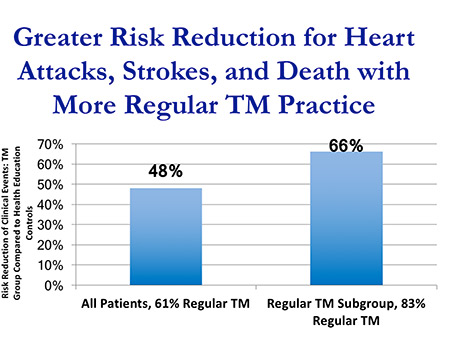
In an NIH-funded, randomized, controlled trial of elderly heart patients, those practicing TM (n=99) an average of 61% of the time (8.5 times per week) experienced a 48% reduction in the risk of heart attacks, strokes, and death compared to health education controls (n=102). The regular TM subgroup (on average 83% regular, 11.6 meditations per week) had 66% fewer clinical events than controls. The more frequent TM practice reduced heart attacks, strokes, and death by another 18%.
Patients who have already had a heart attack are at very high risk for having a second one, and any heart attack can be deadly. In one study, those who practiced the TM technique for 5.4 years nearly cut in half their risk of death, heart attack, and stroke, as documented in a 10-year randomized, controlled clinical trial funded by the National Institutes of Health.
The results were so significant that the American Heart Association’s journal Circulation: Cardiovascular Quality and Outcomes published the study in 2012,3 and hundreds of articles appeared in newspapers around the world to share these dramatic findings
Notably, for those who are regular in their TM practice, there’s strong evidence that they’re experiencing even greater benefits. Among the regular meditators with heart disease, those practicing their TM technique at least 83 percent of the days (or 11.6 meditations per week) reduced their risk beyond the usual 48 percent to a full 66 percent reduction in risk of heart attack, stroke, and death compared to controls.
There are also numerous studies showing that TM lowers high blood pressure, one of the most significant risk factors for cardiovascular disease. In short, if you practice TM regularly, you will reduce your risk of heart disease on many fronts. To find out what more you can do, let’s turn to the time-tested texts of Ayurveda.
If you practice TM regularly, you will reduce your risk of heart disease on many fronts.
Ayurveda Pinpoints the Start of Heart Disease in Poor Diet, Weak Digestion
Ayurveda, the traditional health system of India, was restored to its full Consciousness-Based® wisdom by Maharishi Mahesh Yogi during the 1980s. From twice-daily TM practice, to natural ways to balance cholesterol, special foods, and daily exercise, Maharishi AyurVeda provides easy ways to protect and nourish your heart through simple dietary and lifestyle changes.
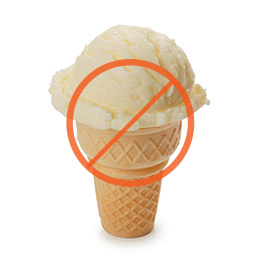
Centuries ago the classic Ayurvedic text called the Charaka Samhita identified the same causes of heart disease that we recognize today: Those who eat heavy, cold, and excessively oily foods in excessive quantity and do excessive mental work, may suffer from disease of the vessels that nourish the heart.
In other words, eating a fatty, rich diet and suffering from chronic mental and emotional stress put us at risk. Cholesterol build-up happens when we overwhelm our digestive tract with fatty foods on a regular basis and are not able to digest and metabolize this food fully. The resulting accumulation of toxins (called ama in Ayurveda)—including elevated cholesterol and triglycerides—are at the root of the physical cause of heart disease.
Specifically, the Ayurvedic texts describe how ama builds up in the plasma, the clear part of the blood, and from there causes damage to the arteries carrying blood and oxygen to the heart.
Modern medicine is now recognizing that elevated cholesterol alone does not fully explain heart attacks. In addition, the other major toxins leading to heart disease include:
1. free radicals
2. overactive immune cells creating inflammation, measured as “c-reactive protein”
3. homocysteine build-up due to lack of folic acid
4. trans fatty acids from impure oils in food
5. environmental toxins, such as mercury from contaminated fish
From the perspective of Ayurveda, if these highly reactive toxins are allowed to stay in the body, they interact with other impurities. Eventually they form an especially vicious form of unstable, irritating ama called ama visha, which can directly damage the arteries.
One example of this ama visha is LDL or “bad” cholesterol, which is not truly harmful until it is attacked by free radicals. Only then is it taken up by immune cells in the artery wall, which begins the process of plaque formation that blocks the passage of blood and can lead to heart attacks.
How to Lower Your Cholesterol the Natural Way

Fortunately, simple dietary changes, such as reducing fat intake, can lower cholesterol effectively for many people. Most of my patients have responded well to Ayurvedic dietary and lifestyle measures, often dropping their cholesterol by 50 points or more within a few weeks.
Here’s a great way to gain more benefits than just a low-fat diet can provide. Eat a primarily vegetarian diet consisting of:
- mostly fresh fruits and vegetables, or “two fists of vegetables daily”
- whole grains and legumes
- Enjoy regular recreation and exercise.
- nonfat, organic dairy products
These foods will provide you with heart-protecting and cancer-preventing nutrition that delivers more nutrient-dense benefits than simply a low-fat diet.
Avoid Ama-Creating Processed Foods

For a heart-healthy diet, eat less meat and cheese, and avoid take-out and packaged foods. Limit your fat intake almost exclusively to small amounts of pure organic olive oil.
In particular, carefully avoid processed and fried foods, restaurant meals, and any foods containing saturated, hydrogenated, or trans fats (especially margarine and partially hydrogenated oils found in baked goods). All of these can elevate cholesterol and promote the formation of a free-radical cholesterol “complex” or combination, which is a particularly dangerous plaque-promoting type of cholesterol.
Just remember that cholesterol is only one side of the coin of ama visha. Toxins and free radicals that combine with cholesterol in the walls of your arteries also increase the risk of a heart attack.
Easy Dietary Tips to Lower Your Cholesterol
The following recommendations will help you optimize your digestion and clear ama from your rasa (blood plasma) and medha (fat tissue).
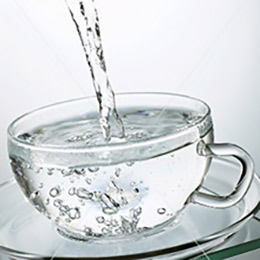
1. Sip hot water throughout the day. This is one of the simplest and most powerful Ayurvedic recommendations for cleansing the body. Ideally, boil the water for 10 minutes and then place it in a thermos. To enhance the effect of the water on medha (fat tissue), add 1/8 teaspoon of fenugreek seeds (crushed a little to release their effect) to your thermos of hot water.
2. Follow a regular schedule of meal times.
3. Avoid eating until the previous meal is fully digested. Wait until you feel genuine hunger again before eating.
4. Eat until you are satisfied, not “stuffed,” and eat slowly. When you dine out, bring a bag of your favorite herbal tea to enjoy at the end of the meal. This is a great way to avoid over-eating. A cup of herbal tea helps you pause and realize that you’re satisfied by what you’ve already eaten rather than going back for seconds.
5. Drink a half-cup of warm water before your meals, and sip more warm water throughout your meal.
6. Eat proportionately more vegetables and legumes (including soy) than other food types, such as breads, dairy, and meats.
7. Include fresh garlic in your daily diet. Sauté a crushed garlic clove in a small amount of olive oil. Mix and eat with your vegetables, soup, or grains. While studies on garlic extracts and powders have not shown them to be effective at lowering cholesterol, Ayurvedic texts describe many beneficial effects of fresh garlic on the heart and blood vessels.
Diet, Exercise, and TM Are the Keys to Heart Health!

Although heart disease occurs through years of less-than-healthy choices, it can also be significantly improved through regular TM practice, lifestyle changes, and diet. Plan and follow your daily routine and healthy diet and be patient. As toxins and impurities reduce, your body’s tremendous capacity for self-repair and healing will gain strength and help return your cardiovascular function to a more healthy status.
And don’t forget to exercise daily for at least 30 minutes—even a walk will do. See my article on Ayurvedic exercise tips, “Take a Morning Walk to Lose Weight, Feel Great.”
As the Center for Disease Control outlines, exercise helps to
- control your weight
- reduce your risk of heart disease, diabetes, and cancer
- strengthen your bones and muscles
- lift your mood, and
- increase your chances of living longer
In addition to all these benefits, Maharishi AyurVeda also explains that exercise enhances your digestive fire or Agni, which is your body’s ability to digest your food well and metabolize ama out of your physiology.
And remember, one of the best foundations for heart health is twice-daily practice of the TM technique, to reduce physical and mental stress, lower blood pressure, and dramatically decrease rates of heart attack, stroke, and death. Regular TM practice enlivens the qualities of pure consciousness in your body, mind, and heart.
References
- Shanthi Mendis; Pekka Puska; Bo Norrving; World Health Organization (2011). Global Atlas on Cardiovascular Disease Prevention and Control (PDF). World Health Organization in collaboration with the World Heart Federation and the World Stroke Organization. pp. 3–18. ISBN 978-92-4-156437-3. Archived (PDF) from the original on 2014-08-17.
- McGill HC, McMahan CA, Gidding SS (March 2008). “Preventing heart disease in the 21st century: implications of the Pathobiological Determinants of Atherosclerosis in Youth (PDAY) study”. Circulation. 117 (9): 1216–27. doi:10.1161/CIRCULATIONAHA.107.717033. PMID 18316498.
- Schneider RH, Grim CE, Rainforth MV, Kotchen T, Nidich SI, Gaylord-King C, Salerno JW, Kotchen JM, Alexander CN. “Stress reduction in the secondary prevention of cardiovascular disease: Randomized, controlled trial of Transcendental Meditation and health education in blacks.” Circulation: Cardiovascular Quality and Outcomes 5(6):750-758, 2012.
* If you have a health condition or take medication, please consult your physician before adopting any new dietary recommendations. Although unlikely, if any discomfort occurs, discontinue the above recommendations.
Best-selling author Dr. Nancy Lonsdorf, M.D., has been an Ayurvedic practitioner for more than 30 years and is recognized as one of the nation’s most prominent Ayurvedic doctors. She teaches Maharishi AyurVeda® in affiliation with the Academy of Integrative Health and Medicine and the University of Maryland School of Medicine’s Center for Integrative Medicine. A frequent speaker on national media, she continues her private practice in integrative medicine and Ayurveda, including Wellness Consultations in person or by phone. For more information on Dr. Lonsdorf’s practice, visit www.drlonsdorf.com. To schedule an Ayurvedic Wellness Consultation by phone or teleconference, please contact Dr. Lonsdorf’s office at 641-469-3174 or healthoffice@drlonsdorf.com.
Copyright 2018, Nancy K. Lonsdorf, M.D. All rights reserved. Do not reproduce without written permission of the author.

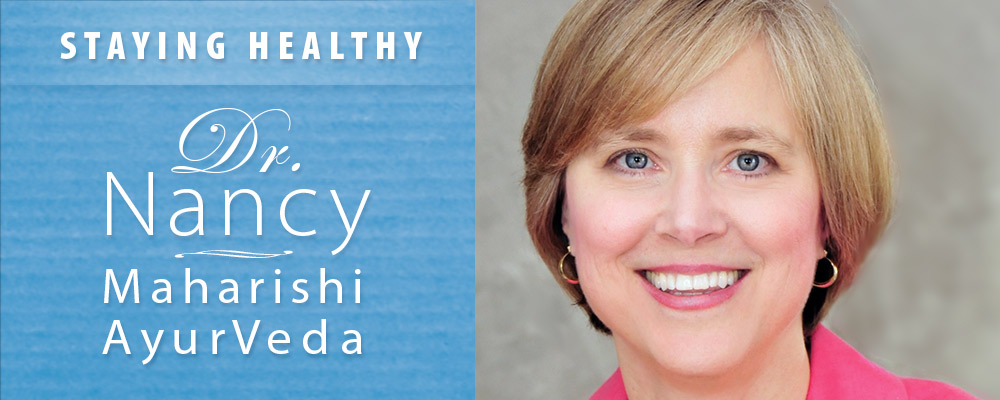


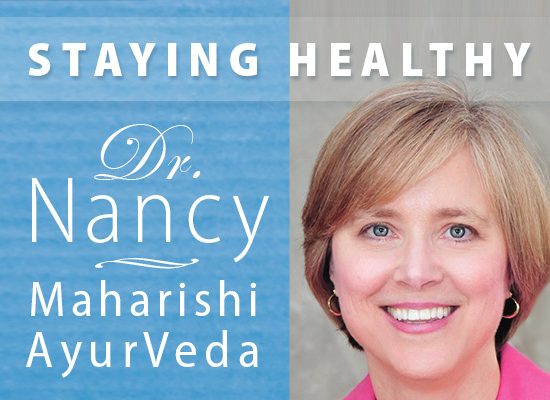

Alloha, Nancy–
I lived in DC for a few years in the 1980’s, and went to you for a physical, and for your diet (the Bliss technique). I moved to Maui from St. Paul in 1994, and have lived here in Lahaina ever since. Nice to see your picture in the Honolulu TM newsletter! Hope your life is going well… Kathy Corcoran
We love you Nancy!!!